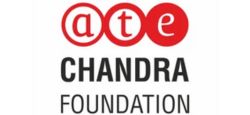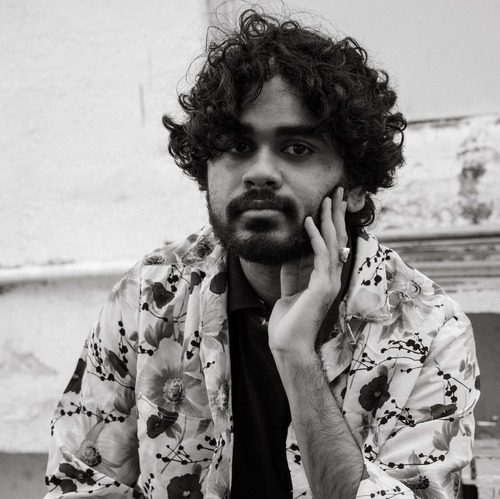Read this case study by J Rajagopal for a detailed look at QUEST’s journey.
Scale is often viewed as an obvious aim for any nonprofit. However, when the focus is on growing an organisation—its budget, employees, programmes—and thus its impact, the conditions required to effectively enable scale are often overlooked. What happens if an organisation’s leadership is resistant to scale? Moreover, does scale look the same at every organisation? If not, what does it look like for grassroots organisations? This case study looks at the example of Quality Education Support Trust (QUEST) to explore these questions further.
QUEST was set up in Maharashtra in 2007 by a group of individuals concerned about the quality of education in the state, especially in terms of teaching and learning practices. With the aim of improving the existing education system, they began to work on early childhood education, elementary education, and the professional development of teachers in the state.

By 2016, the organisation had developed several programmes and the demand for their offerings was growing. At that juncture, QUEST had an annual budget of INR 2.63 crore and a team of 55 individuals, 13 of whom were reporting to the director, Nilesh Nimkar. Impressed by QUEST’s impact on the ground, Y M Deosthalee—former chairman and managing director of L&T Finance—recommended that they scale their programmes beyond the three or four districts they were working in at the time.
Initially, Nilesh was against the idea for two reasons. First, acquiring the funding to scale up sustainably was a concern. “Our organisation was not established by a high networth individual (HNI) or business house, so fundraising was always a challenge for us,” he says. Second, Nilesh feared that scaling would result in the loss of his cherished connection to the field. “I never had the ambition to lead an organisation that had a multi-crore budget and worked across states. What I started with was a genuine interest in problem-solving, knowledge building, and making an impact. So I worried that if we grew the organisation, we might lose a good educator and gain a bad CEO.”
This compelled QUEST to revisit the problem it was looking to solve. Nilesh recalls, “We thought about what the real challenge [with respect to education] is in India. Is it quality alone, or is it quality at scale?” Thinking through this question consolidated their commitment to scale, as limiting their work to just a few districts wouldn’t meaningfully contribute to achieving their intended goals.
Although the senior team at QUEST had significant field experience, their management experience was limited. In order to scale their impact, they would need to actively engage in capacity building. This would entail investing in multiple capabilities, including strategic clarity, organisational restructuring, financial planning, fundraising, and people development. The process began with Nilesh attending the Dasra Social Impact Leadership Program, which offered beneficial insights into leadership and management. However, he couldn’t envision what scale would look like in his own organisation based on the case studies presented in the programme. Given that QUEST was much smaller and operated in a completely different context, he felt that he would require tailored guidance to be convinced of the organisation’s scalability. It was the personalised coaching offered by J Rajagopal under Dasra’s ‘Coach4Good’ programme that really helped Nilesh. Through conversations with Rajagopal, Nilesh realised that QUEST needed to formulate a management team to serve as a second line of leadership. Additionally, the coaching enabled Nilesh to devise a systematic plan for the delegation of responsibilities within the organisation. Nilesh also attributes the organisation’s ability to reflect on and unpack the benefits of their capacity building journey to the thinking exercise that they engaged in as part of Rajagopal’s case study that documents QUEST’s growth.
Understanding the complexity of the situation and the lack of internal expertise, QUEST approached a capacity building funder to support this journey. With the funder’s help, they engaged Dasra to handhold them through the initial stages. Driven by their faith in the importance of a clear organisational vision and internal communication, QUEST began to re-articulate their vision, mission, and strategic priorities. The newly devised organisational strategy was documented and disseminated to the team to solicit their buy-in. The organisation also made a concerted effort to ensure that their programmes and strategic priorities were in alignment with each other.


Restructuring and its challenges
QUEST’s flat structure was a clear pain point, as it left Nilesh with the responsibility of directly managing many team members. Thus, an organisational restructuring was in order. This included decentralising decision-making and developing a second line of leadership to manage the needs of a growing organisation.
However, this was not without its challenges. First, akin to Nilesh, many senior members of the team were reluctant to take on managerial responsibilities. Having joined QUEST with a zeal for working on education, they felt that managerial work was a distraction. The incompatibility between their individual priorities and the needs of running an organisation, and the fear that the pursuit of scale would dilute QUEST’s impact, resulted in a few employees departing at this stage.
QUEST also deliberated on whether to hire laterally for these managerial positions or fill them by promoting talent from within the organisation. They tried both strategies, and quickly found that lateral hires were less likely to fit the organisation’s culture. According to Nilesh, while this recruitment was an aspect of a larger effort to formalise QUEST’s culture and enable its growth, the new recruits perhaps expected more things to be in place. “They came in with ready-made solutions that didn’t quite suit an organisation like ours that was still in the middle of a transition”, says Nilesh. This was met with resistance from the rest of the team, and as a grassroots nonprofit that works extensively in the field, they needed the relationship between the field team and senior management to be strong. Therefore, they committed to encouraging people within the organisation to step up and supported the development of their managerial capacities.
This support was facilitated by identifying key responsibility areas for the senior team and the functional responsibilities of each of its members. Aided by their newly devised internal communication plan, they helped key personnel understand their new roles. More importantly, they identified mentors for senior staff members to nurture their capabilities.
As QUEST grew, so did its budget. The organisation thus set up a dedicated fundraising wing led by a senior resource. They initially recruited part-time personnel to support the fundraising director, but they felt that the time and investment taken to onboard and integrate part-time hires wasn’t commensurate to their eventual output. As they search for full-time fundraising personnel, the rest of the team is supporting the senior resource by devoting a portion of their time to fundraising activities. As a result of their improved focus on raising money, the organisation was able to meet its budget of INR 7.53 crore in 2022–23.
What is it like now?
QUEST’s capacity-building efforts provided them with a clear vision and direction. Contrary to Nilesh’s initial concerns, these efforts expanded the bandwidth of the leadership and allowed them to redirect their energies towards critical organisational needs that had previously been overlooked. He notes, “Building the organisation substantially freed up my schedule. Now, I can invest a lot more time into the core business than I was able to in 2016.” The establishment of a managerial cadre promoted their professional development as well. While the organisation did not have a second line of leadership before the intervention, it now has a six-member team that has been trained to assume leadership responsibilities.
The capacity building endeavour also helped the organisation become resilient enough to withstand the pandemic and its resultant setbacks. Before the intervention, the organisation had no system in place to collect, analyse, and report financial data. Moreover, their financial reserves amounted to approximately INR 30 lakh prior to hiring fundraising personnel in 2019. By creating a system to track the organisation’s finances across multiple programmes and locations in a single consolidated sheet, QUEST’s leadership were able to manoeuvre through the pandemic. Nilesh notes that he couldn’t envision the leadership team accomplishing this feat prior to their professional development through the capacity building effort. Additionally, their financial reserves expanded to INR 1.05 crore in 2023.
Back then, the organisation set ambitious goals of reaching approximately 7,000 teachers and 2.7 lakh children by 2022. Owing to the organisational development and budget growth they’ve witnessed since then, they’ve exceeded these targets and reached approximately 2.97 lakh children and 12,677 teachers as of early 2023. Importantly, QUEST has established its credibility in the field of education, which can often go unnoticed in the case of smaller organisations.
Advice for nonprofits
1. Invest in capacity building to scale sustainably
As nonprofits grow, they need to build organisational capabilities along multiple dimensions to handle complexities and ensure impact at scale. QUEST was poised to scale quicker and more efficiently due to its emphasis on capacity building and the strategic clarity that emerged as a result.
2. Prioritise design before scale
Besides building capacities, nonprofits must also ensure their programmes are designed well. “We were able to maintain the quality of our programmes despite scaling considerably because we had set up and tested our programmes at a smaller scale in a very robust manner,” Nilesh says. Given that scaling impact underpins the need to scale an organisation, nonprofits should ensure that their mission is articulated well and their programmes are tested extensively. “Create a model that works, and then go for scale.”
3. Programme over-reliance can be dangerous
According to Nilesh, it is better for nonprofits with multiple programmes in place to scale them parallelly rather than disproportionately focus on one programme. In 2016, QUEST had six programmes in place. One of them was the Palvee programme, which focused on early childhood education in anganwadis. It was a programme that they found difficult to procure funding for, and which could have been abandoned to focus on their more ‘successful’ programmes. However, they fought hard to keep it alive as they scaled. Owing to the increased focus on early childhood education in the National Education Policy, Palvee now accounts for 50 percent of their budget. Emphasising the importance of avoiding an overreliance on a single programme, Nilesh notes, “Keep multiple programmes on, so you don’t find yourself thinking ‘What do I do if this programme fails?’ after you scale.”
Advice for funders
1. Grassroots organisations need long-term support
Funders must adopt a long-term view, especially when supporting grassroots organisations. Nilesh echoes the sentiment that sustainable impact cannot be achieved immediately. “Support any organisation for at least three to five years because impact takes time,” he says.
QUEST was able to get capacity building funds to focus on gaining strategic clarity. However, a lack of subsequent funding can lead to plateauing of impact if the organisation is unable to continue building the capabilities required for sustaining its scale-up. Hence, funders must increase capacity-building investments and commit to extended periods of financial assistance.
2. Bring experts on board and provide adaptable funding
In a survey of Indian nonprofits by Bridgespan, only 18 percent reported that they were able to adequately invest in organisational development. This was largely due to the dearth of funding for non-programme costs. Grassroots nonprofits may lack the expertise to build capacities independently and are unlikely to be able to afford the services of experts. However, funders can enable them to seek out and utilise such services.
Nilesh stresses that employing the services of a capacity-building agency to handhold them through the initial stages was transformational for QUEST, and this wouldn’t have been possible without the help of the committed funding they received for this purpose.
Adaptability is also a key feature of holistic funding. By virtue of having adaptable funders on board, QUEST was able to repackage its programmes during the pandemic to deliver them online. As a result, they were able to continue working with the communities they were already associated with, maintain their contact with the field throughout the lockdown, and quickly gear up their programmes post Covid.
3. Fund organisational development, not just programmes
According to Nilesh, the underfunding of non-programme costs remains a problem. He emphasises that capacity building is a critical prerequisite to effectively delivering a programme at scale. He thus recommends that a portion of the funds be earmarked specifically for capacity building efforts. Nilesh says, “There should be a larger discussion about how critical it (capacity building) is, and why it should not be addressed through separate grants alone.”
What lies ahead?
By designing detailed implementation plans and developing the capabilities of key personnel, QUEST has achieved the targets defined at outset of its capacity-building endeavour and is on track to further growth. However, capacity building never ends. As the organisation evolves, there’s always more that needs to be done. QUEST is looking to continue strengthening its communications vertical to match its current scale and increasing visibility among stakeholders. Additionally, Nilesh hopes to carry on building the second line of leadership at QUEST to further decentralise decision-making within the organisation. “With growing operations, it is necessary for the second line of leadership to take charge of more aspects,” he notes. Nilesh hopes to eventually appoint a successor who can dedicatedly lead the organisation as it grows even larger.
—
About Nilesh
Nilesh Nimkar is a founder trustee and director of Quality Education Support Trust (QUEST). At QUEST, he has designed and implemented programmes on early childhood education, elementary education, and teacher professional development. Many of his research studies within QUEST programmes have been published in reputed journals. For his work in education, Nilesh has received the Maharashtra Foundation Award (2011) and the Extraordinary Early Childhood Education Leadership Award (2017).
—
Know more
- Read this case study on how nonprofits can scale impact with the help of an external consultant.
- Read this article to learn whether your organisation is ready to scale.





